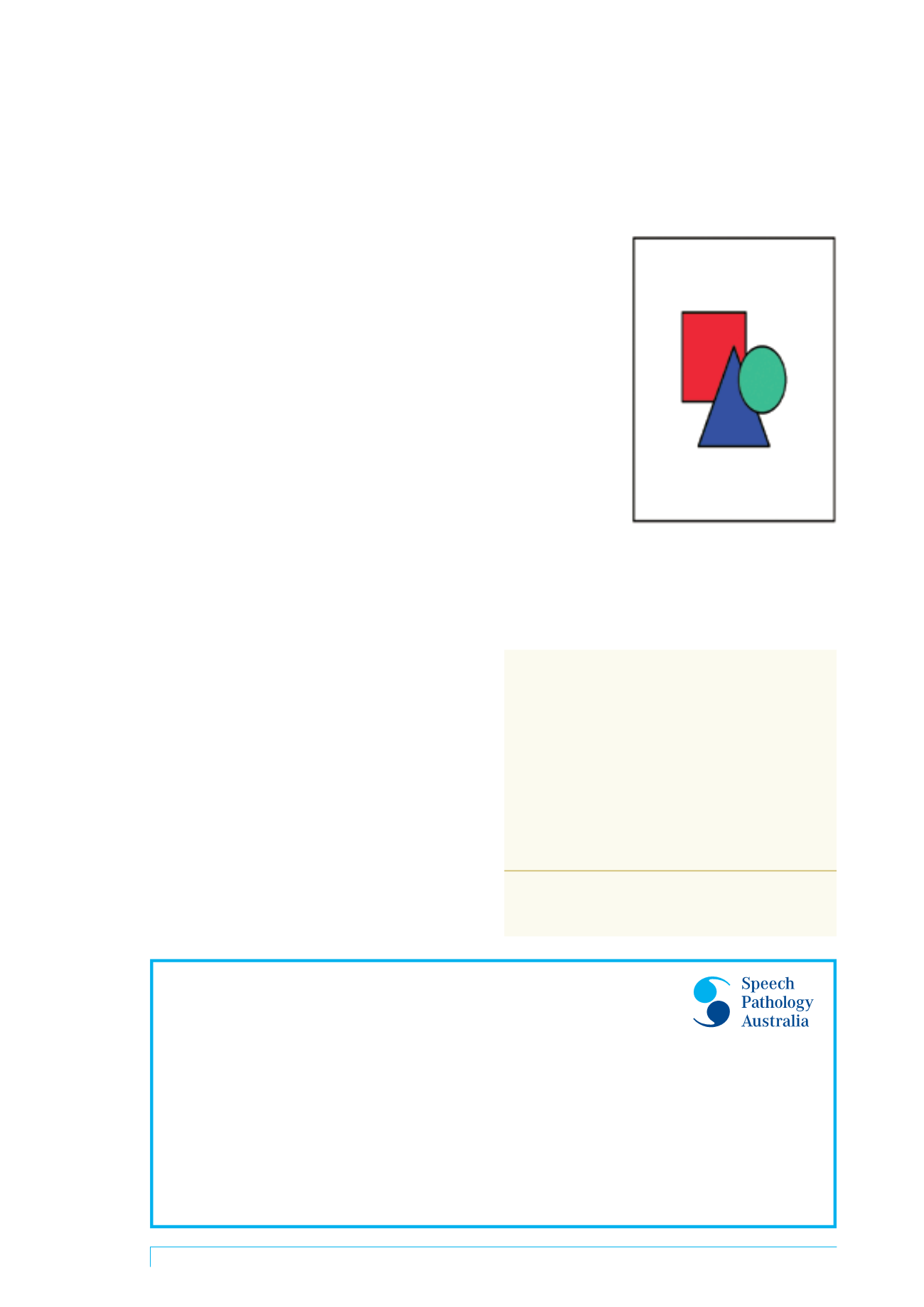

158
ACQ
Volume 13, Number 3 2011
ACQ
uiring Knowledge in Speech, Language and Hearing
newsletter, which contains a range of useful articles and
information, including information about local services for
families living in Melbourne.
10. Learn to Play: A Practical Program to
Develop a Child’s Imaginative Skills,
Karen Stagnitti
This is a practical
program designed
to develop the
imaginative play
skills of children up
to 6 years of age
with developmental
delay, autism
spectrum disorder,
language disorder,
and other
disabilities. It
includes an
imaginative play
checklist and parent
checklist. The
assessment is
called the Symbolic
and Imaginative Play Developmental Checklist (SIPDC).
This assessment provides a basis for planning an
intervention program that will facilitate the development of a
child’s pretend play. Published by Co-ordinates
Publications, 1998. Available for purchase through
therapybookshop.com.
different CALD backgrounds. To receive information about
playgroups in different local government areas contact the
local maternal and child health nurses, the Playgroup
Association in each state, or local government.
6. Clinical guidelines from Speech
Pathology Australia and the Royal
College of Speech and Language
Therapists
The clinical guidelines
Working in a Culturally and
Linguistically Diverse Society
(Speech Pathology Australia)
and
Good Practice for Speech and Language Therapists
(Royal College of Speech and Language Therapists) provide
information and best practice guidelines. http://www.
speechpathologyaustralia.org.au/; http://www.rcslt.org/members/publications/linguistic_minorities
7. MacArthur-Bates Communicative
Development Inventories (2nd edition)
Parents document a child’s understanding and use of early
vocabulary, symbolic gesture, and complexity of utterances.
Vocabulary items are separated into semantic categories
such as animal names, household items, and action words.
The
CDI: Words and Gestures
is standardised for children
aged 8–18 months.
The CDI: Words and Sentences
is
standardised for children aged 16–30 months. Available
from Brooke Publishing:
http://www.brookespublishing.
com/sitemap.htm
8. Rosetti Infant-Toddler Language Scale
The
Rosetti Infant-Toddler Language Scale
assesses the
language skills of children from birth through to 3 years of
age. The scale assesses preverbal and verbal areas of
communication and interaction through a combination of
direct observation and caregiver report. It examines several
areas including: interaction-attachment, pragmatics,
gesture, play, language comprehension, and language
expression.
9. Bilingual Options website and regular
Snippets newsletter
The Bilingual Options website
(www.bilingualoptions.com.
au) is designed and operated by Susanne Döpke who has
extensive academic, clinical, and personal experience
working with children growing up in CALD backgrounds.
This website provides information, resources, and links to
information for families raising children in bilingual
backgrounds. Susanne also puts together the
Snippets
The Multicultural Interest Group (MIG) provides a forum for
information sharing and problem solving around culturally inclusive
practice for working with culturally and linguistically diverse
communities. We do this through inviting different speakers to a
meeting, discussing and reviewing journal articles, or sharing
resources around a particular issue.
MIG is open to all allied health and other professionals with an
interest in this area. We do not have regular meeting dates, instead
organise meetings as topics arise or as suggested by members. If
you are interested in having your details added to our email
distribution list please contact Joanna Chalkley on jchalkley@mcm.
org.au.Correspondence to:
Joanna Chalkley
email:
jchalkley@mcm.org.auNATIONAL JOB BOARD
With over 4500 members, advertising your position with Speech Pathology Australia offers fantastic value for
money.
Features of
Advertising your Job
with Speech Pathology Australia include:
• Direct connection with qualified speech pathologists.
• All advertised positions are sent to members via a link in our Association monthly National and Branch e-News.
• Enhanced website facilities.
• Access to the Job Board is open to members, non-members and potential employers.
• Easy to register a position; simply complete the online form with your payment.
• Your job ad will appear online within approximately one working day of your submission.
Visit
www.speechpathologyaustralia.org.aufor more information
















